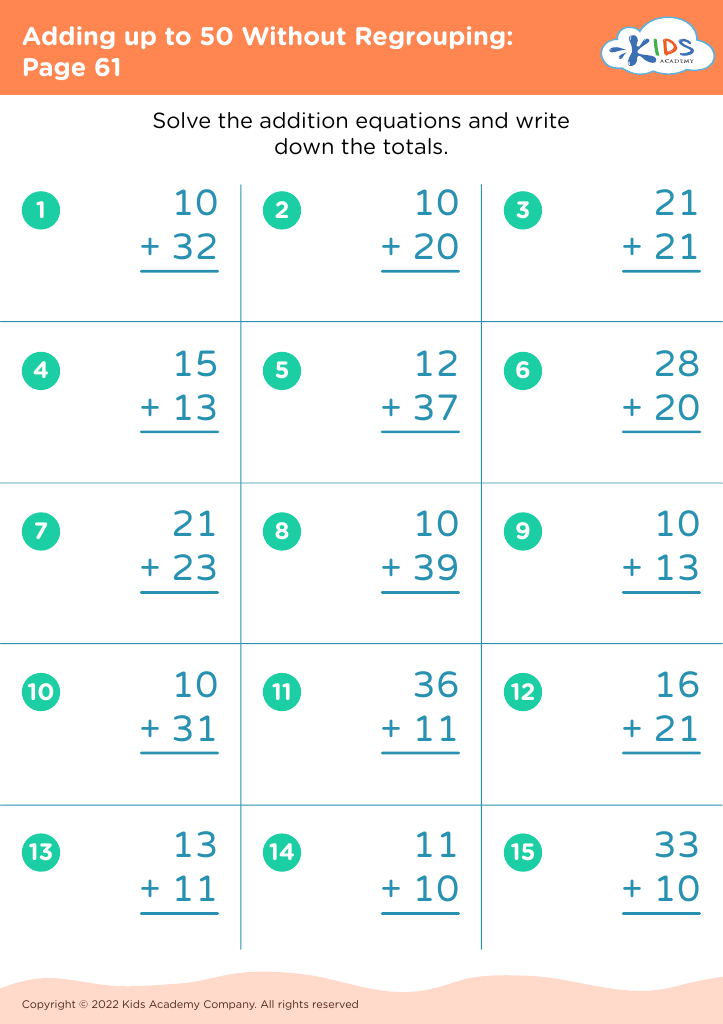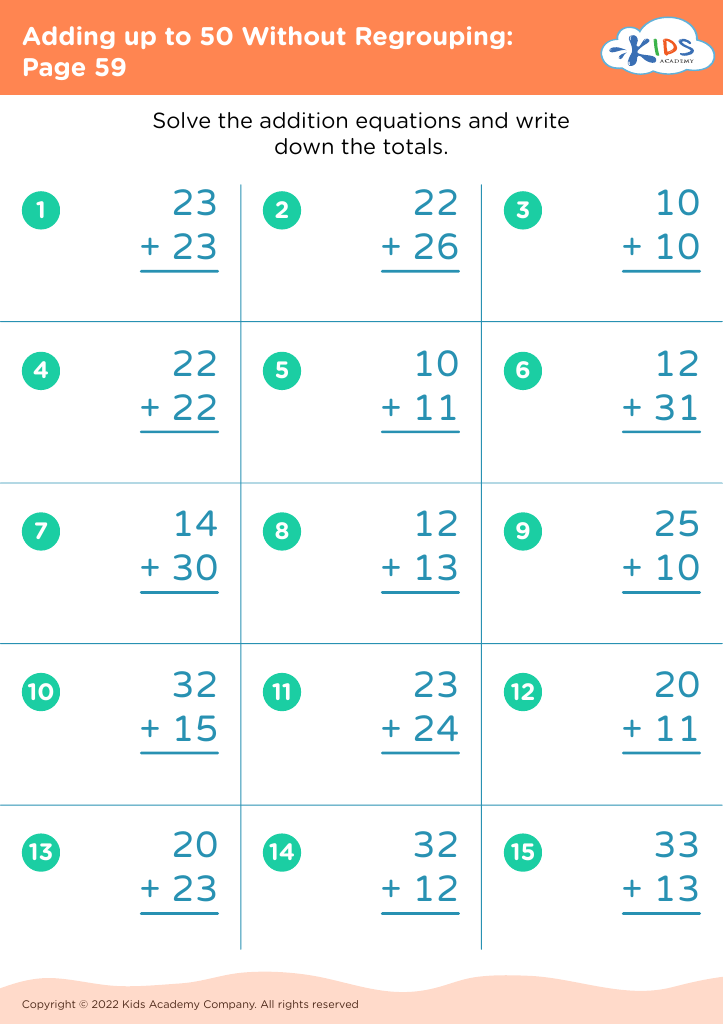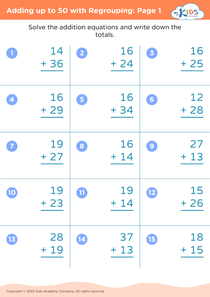Basic addition practice Adding up to 50 Without Regrouping Worksheets for 7-Year-Olds
3 filtered results
-
From - To
Welcome to our Basic Addition Practice worksheets designed for 7-year-olds! These engaging worksheets focus on adding numbers up to 50 without regrouping, making math fun and accessible. Our resources help young learners build confidence in their addition skills through a variety of exercises and colorful illustrations. As children practice, they will develop a strong foundation in mathematics that supports their future learning. Ideal for classroom activities or home practice, these worksheets make learning enjoyable and effective. Start your child's math journey today with our carefully crafted addition worksheets, and watch them excel in their math skills!
Basic addition practice, specifically adding up to 50 without regrouping, is crucial for 7-year-olds as it lays a strong foundation for their mathematical understanding. At this age, children are developing their cognitive skills and learning to think critically. Mastering simple addition helps them build confidence and fosters a positive attitude toward math—an important subject that influences future academic success.
Additionally, these skills are essential for daily life. Understanding basic addition allows children to handle everyday situations, such as counting money, telling time, and measuring ingredients while cooking. Moreover, a solid grasp of addition lays the groundwork for more complex mathematical concepts, like subtraction, multiplication, and division, which they will encounter later on.
For teachers and parents, prioritizing practice in this area also facilitates effective learning. It can help identify any learning gaps early, allowing for targeted interventions. Engaging students in fun, interactive ways, such as games or storytelling, can make practice enjoyable, enhancing their motivation and retention. Overall, attention to basic addition not only nurtures academic skills but also supports overall development, striving to cultivate engaged and capable learners for the future.














